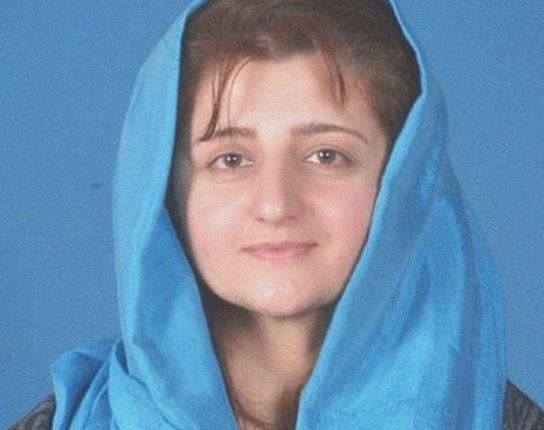Human rights violence and persecution in the region of Indian-occupied Jammu & Kashmir.
Recent history bears witness to numerous ruthless events, including the killing of innocent individuals spanning from the age of 5 to 75, custodial torture, and forced disappearances of individuals taken into illegal custody. The illegal detention of countless individuals under draconian laws, with state security apparatuses enjoying impunity and amnesty, is rampant. Regrettably, the legal process and associated institutions seem to complement the oppressive regime rather than provide protection through the existing grievance mechanisms.
All facets of society appear to be under the control of unseen forces serving the interests of a regime that has vested itself in maintaining the status quo by utterly denying the most basic freedoms and liberties of its citizens. The common man is forced to live in a perpetual state of fear within what is paradoxically labeled as one of the most beautiful and heavily guarded open prisons in the world.
Tragically, we have witnessed the squandering of valuable human potential, particularly among the youth, who are ensnared in a legal system seemingly designed to punish and deter an entire population. While the global community has voiced its concerns over such atrocities and violations, there remains a sinister silence concerning Kashmir, as these actions are veiled under the guise of democracy and the rule of law.
The legal system and judiciary, rather than safeguarding citizens, have facilitated the implementation of fascist policies. It’s important to remember that pertinent UN Security Council Resolutions mandate that the future of Jammu and Kashmir should be decided by its people, through a free and impartial plebiscite under UN supervision. Domestic legislation or judicial verdicts should not undermine the genuine aspirations of the Kashmiri people.
Embarking on a journey: a blank canvas awaits, eager for the brushstrokes of experience to craft a lifetime masterpiece:
Dr. Muhammad Qasim was born in Zaldagar, Srinagar, on November 13, 1967. He is married to Aasiya Andrabi, the Chief of Dukhtaran-e-Millat. With a doctorate in Islamic Studies, he has authored and edited 19 books, comprising 5 in English and 14 in Urdu. In 1985, he participated in the selection test for the post of sub-inspector when the Jammu and Kashmir police sought applications from youths. Later, in 1989, he became the spokesperson for Hizbul Mujahideen. It’s important to note that India controls approximately 55% of the land area of the region, encompassing both Jammu and the Kashmir Valley. This region has witnessed an armed insurgency since 1989, driven by demands for self-determination due to political disenfranchisement and alienation. During this period, Indian forces have been accused of numerous human rights abuses against the Kashmiri civilian population, including extrajudicial killings, rape, torture, and enforced disappearances.
Dr. Qasim contested his detention, prompting the court to instruct the government to review his case. Subsequently, the government appealed his acquittal in the Supreme Court, which sentenced him to life imprisonment. After the judgment, the Supreme Court directed the government to form a Review Board on June 3, 2008. This board, comprising the then Director General of Prisons and the Principal District and Sessions Judge of Srinagar, Hasnain Massodi, was tasked with considering Qasim’s release under the provisions of the Jammu and Kashmir Jail Manual 2000.
However, the Criminal Investigation Department (CID) opposed the board’s recommendations, citing rule 54.1 of the Jail Manual, which prohibits the release of convicts serving life sentences under the Terrorist and Disruptive Activities (Prevention) Act (TADA) upon completion of two-thirds (14 years) of their 20-year sentence. Despite this, Dr. Qasim petitioned the High Court, seeking directives in line with the recommendations of the review board. Since then, the decision regarding his release has remained uncertain.
He was granted bail by the TADA court in Jammu in March 1999 but was subsequently rearrested in February 2000 upon his return from the UK, where he had attended a conference on Kashmir. He was then transferred to the torture center at Talab Tiloo in Jammu. Indian intelligence agencies approached him, possessing a copy of his latest publication, “Maslai Kashmir ki Sharaie Hai-syat” (Kashmir imbroglio in the light of Muslim law). They made a straightforward offer: join the electoral politics apparatus, and the case would be withdrawn. They even proposed a specific role, suggesting the education portfolio due to his high level of education.
Marked 31 years in an Indian prison, the fragile health unwavering passion for the struggle:
Throughout his 31 years of imprisonment, Dr. Qasim has authored over 20 books covering religious, social, and political subjects, with six books written in English and 15 in Urdu. He is recognized as an Islamic scholar, staunch religious adherent, and advocate for Azadi (freedom).
Dr. Qasim has suffered significant health issues during his imprisonment. He has lost more than half of his eyesight (-4.75 D) and is regularly experiencing vision loss, leading doctors to recommend Lasik surgery. Additionally, he has been advised surgery by an orthopedist for his L4-L5 disc. He is also undergoing treatment for erosive duodenitis, chronic gastritis, and intestinal ailments. Unfortunately, the jail authorities have shown little concern for his medical conditions, resulting in his health deteriorating with each passing day.
A senior Pakistani journalist once said,” The spouse of Asiya Andrabi, Dr. Qasim Faktoo, is often referred to as the “Nelson Mandela of Kashmir” due to his prolonged incarceration. Dr. Faktoo has been imprisoned since 1993, enduring 31 years in Indian prisons. Now, the largest democracy in the world is reportedly considering announcing a life imprisonment sentence for his wife”.
India should grant unrestricted access to United Nations and Organization of Islamic Cooperation (OIC) observers, international media outlets, and human rights organizations to Indian Illegally Occupied Jammu and Kashmir (IIOJK) to gather first-hand information about the situation. It is imperative to allow these entities to investigate and report on human rights violations occurring in the region.
“The beautiful prison”, ignited by the Narendra Modi-led fascist government since 1947, now burns unchecked, with no one to extinguish the flames.

